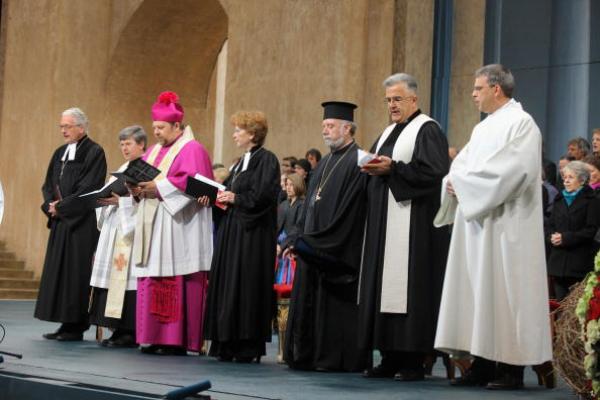For years, advocates for greater unity among Christian churches have wrung their hands amid talk of an "ecumenical winter."
But now, 10 years after leaders took the first steps toward forming the broad-based group Christian Churches Together in the USA, some have hopes that U.S. churches may be entering a new season of closer relations.
At a recent CCT meeting in Memphis, Tenn., 85 Christians -- Catholic, Protestant and Orthodox, white and nonwhite -- made pilgrimages to historic sites of the civil rights movement. They also made plans to use next year's 50th anniversary of the Rev. Martin Luther King Jr.'s Letter from a Birmingham Jail to pursue anti-poverty projects with houses of worship unlike their own.
"I would like to think of it as an ecumenical spring and that we do not yet know what will break forth," said the Rev. Stephen J. Sidorak Jr., ecumenical staff officer of the United Methodist Church.
"I think that there's the potential for the ecumenical movement to be more alive than it's ever been because it will be more inclusive."
In many ways, the movement that has grappled with theological differences, leadership struggles, finances -- and even what to call itself -- is in the midst of major down-sizing that they hope will lead to wider engagement:
Read the Full Article

